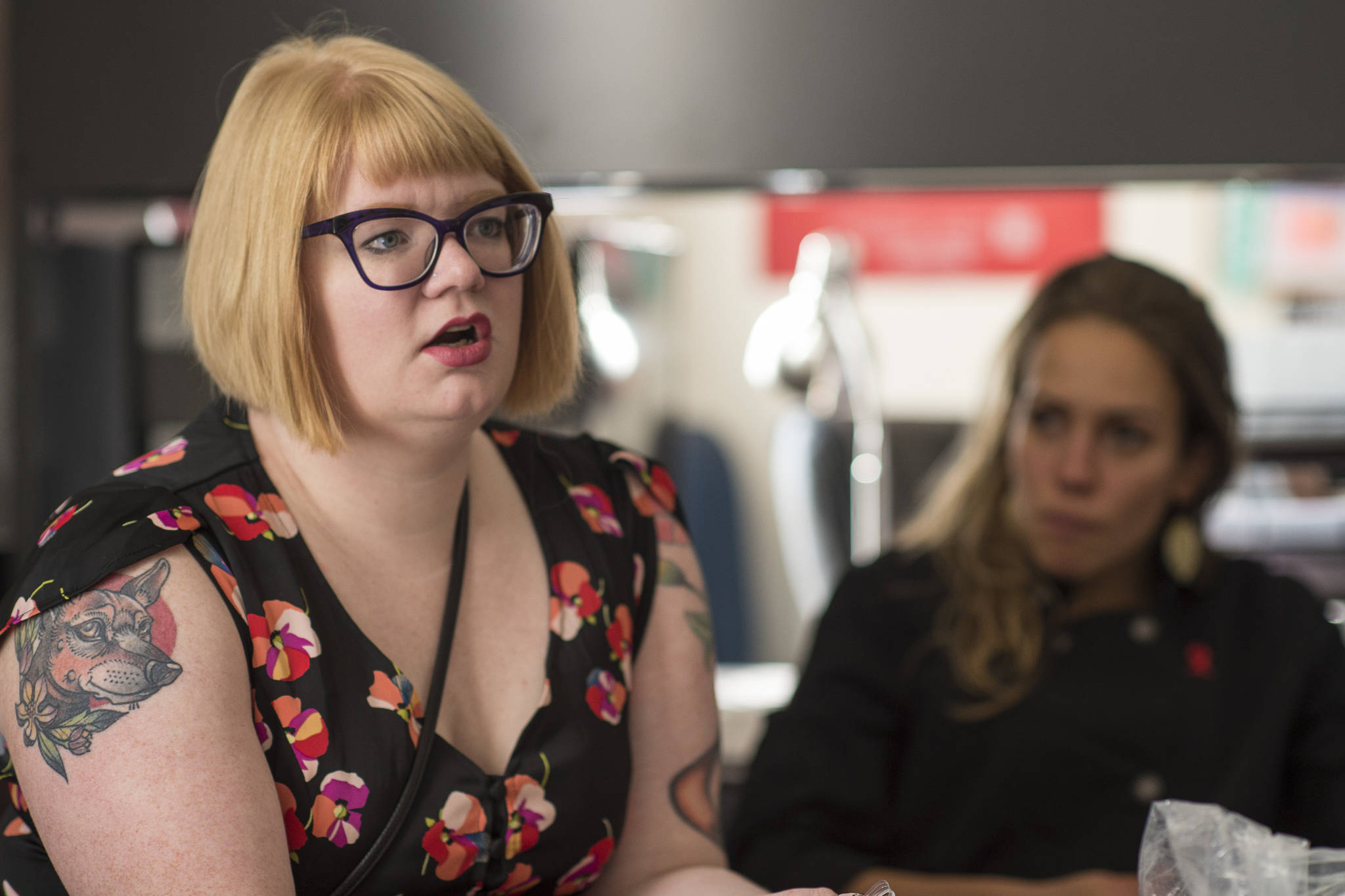More than 100 people regularly use the syringe exchange at the Alaskan Aids Assistance Association (Four A’s) office in downtown Juneau, but due to the lack of funding, the program could fold at the end of the year.
Four A’s Southeast Advisory Board members Claire Geldhof and Melissa Griffiths prepared safe injection kits Friday afternoon as they explained that in just a few months, this service might be gone from Juneau. Syringe exchanges are in place all over the country, seeking to cut down on the amount of communicable diseases — including HIV and Hepatitis C — that can result from reusing and sharing needles.
Four A’s Executive Director Heather Davis explained in an interview Friday that federal funding for syringe exchanges and other HIV prevention programs is shifting toward places where more people are affected by the disease, notably the U.S. Southeast. As a result, Alaska (which Davis said is defined as “a low-incident” HIV area) is getting less funding.
That’s having a major effect on both offices — in Anchorage and Juneau — and Griffiths said the Juneau office will shut down at the end of the calendar year unless they’re able to raise the money to stay open until the end of the fiscal year next June. They’ve set the goal of $15,000, and are more than halfway there now.
Griffiths and her co-board members have taken a crowdfunding approach, and have raised just over $8,000 as of Friday. The online fundraiser can be found at https://app.mobilecause.com/vf/SEServices.
“I think it’s important for people to know that you don’t have to make a big donation to make a difference,” Griffiths, who is also on the statewide Four A’s board, said. “I don’t know the exact details, but a donation of five dollars, that’s going to help people get supplies. A donation of $50, that’s disposing of a significant amount of used syringes. It all helps, and it all adds up.”
Syringe exchange programs have proven to be a divisive issue across the country, as detractors have claimed that these programs promote drug use and crime. Numerous studies dating back to the 1980s have shown that exchange programs cut down on HIV rates and can even lead to people getting into treatment.
The Four A’s office in Juneau helps connect people with treatment programs in town and educates them on options they have. The fact that syringe users are participating in exchange programs, Griffiths pointed out, is a sign that they’re caring about their body.
“It’s one step at a time, Griffiths said. “Maybe the first step is just making sure they’re as safe and healthy as possible while they’re using, but then then next step might be seeking other services to actually get treatment and make changes in their lives.”
If the office does go out of business, Geldhof and Griffiths explained, it would be much more difficult for these syringe users to get access to clean syringes and needles. There would no longer be a free program in town, and people would have to go to pharmacies and buy them, they said. They also said that some pharmacies might not even sell to people who don’t have an insulin prescription.
Geldhof, who is also a registered nurse, said she’s particularly concerned about Hepatitis C and skin infections in addition to HIV. Cases of Hepatitis C have already been rising at a concerning rate, Geldhof said. An Alaska Department of Health and Social Services Epidemiology bulletin from August 2016 stated that in Southeast, cases of Hepatitis C in young adults increased by 490 percent. Geldhof said there’s a correlation between needle usage and Hepatitis C.
Geldhof pointed out that people from all around Southeast come to Juneau for this program, and secluded places such as Haines could be in danger of an outbreak if the community no longer has access to clean needles.
In terms of a long-term solution to the funding problem, Davis said, her office is actively seeking out grants.
“Getting grants, of course, is the best way to do it,” Davis said, “because you can’t depend on donors every year and you have to keep an office sustainable, so we’re trying to find sustainable sources.”
• Contact reporter Alex McCarthy at 523-2271 or amccarthy@juneauempire.com. Follow him on Twitter at @akmccarthy.

